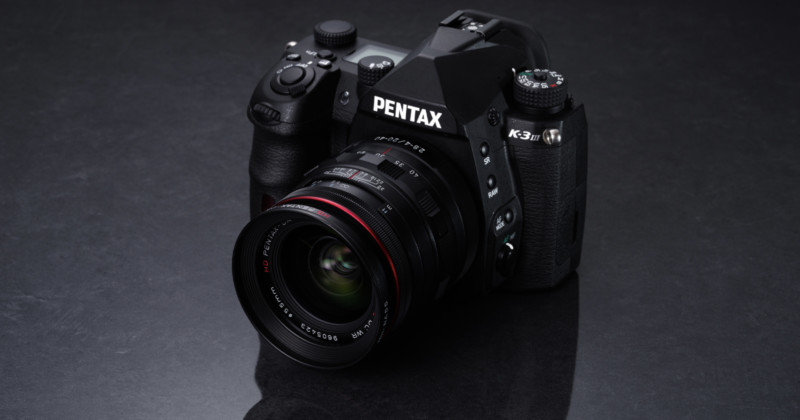
After months of hype and an unexpected delay, Ricoh has finally announced the Pentax K-3 Mark III DSLR. The flagship camera features an optical viewfinder, a ruggedized body, an AI-assisted subject recognition technology, and a 25.73-megapixel BSI sensor with ISO sensitivity up to 1,600,000.
Pentax/Ricoh (from this point on referred to simply as Pentax) says that the K-3 Mark III is the sum of its five principles: Designing cameras through sheer devotion, producing cameras with the power to capture images with a direct communication with the subject, designing cameras that allow for the enjoyment of every process of making an image, pursuing a level of quality and performance that cannot be measured by numbers alone, and respecting and valuing the photographic experience of its users.
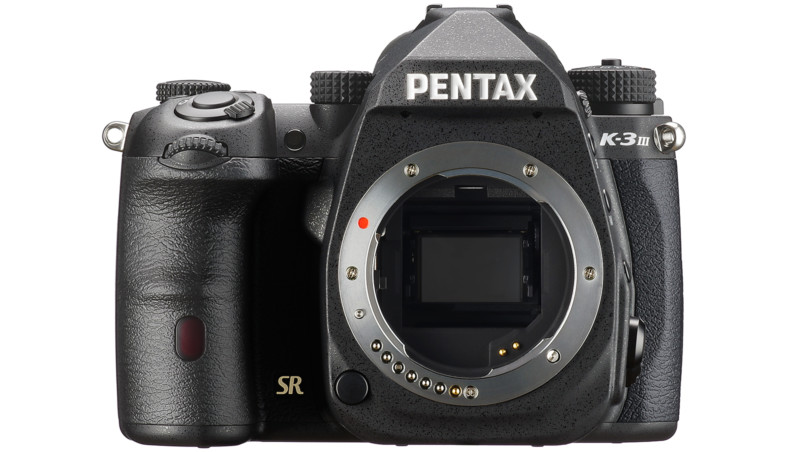
To that end, there are very specific reasons Pentax chose to make this camera the way they did, the most notable of which is that it is a DSLR and not a mirrorless.
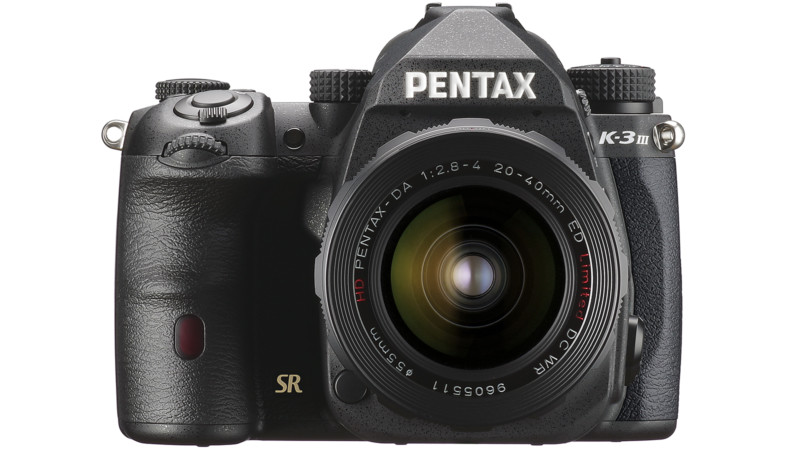
As a DSLR, the K-3 Mark III features a classic optical pentaprism viewfinder, which the company says has “nearly” 100-percent field of view and a 1.05x magnification. It also says that its newly-developed high-refraction glass prism “assures comfortable viewing with a wide field of view equivalent to that of a full-frame SLR.” It also features a distortion-correcting optical element and optimized lens coating to deliver that clear, “true-to-life” viewfinder image — which is 10% brighter than the one found on the K-3 Mark II — that the company puts so much emphasis on.
Incorporating a Natural Bright Matte III focusing screen — known for ease of focus during manual-focus shooting — it also delivers a sharp, clear subject image with faithful reproduction of the bokeh effect. In addition, its transparent display lets the user monitor a wide range of operational data in the viewfinder window.
The 25.73-megapixel APS-C CMOS sensor is coupled with an AA-filter-free optical design to produce what Pentax calls “super-high-resolution images.” The sensor is powered by the company’s new PRIME V imaging engine and new-generation accelerator unit that it says will deliver well-defined images with minimal noise while retaining resolution at all sensitivities. That said, it has an AA-filter simulator (which can be toggled on and off), which the company says effectively reduces moire patterns to the same level as an optical AA filter. It does this by applying microscopic vibrations to the i mage sensor at the sub-pixel level during exposure.
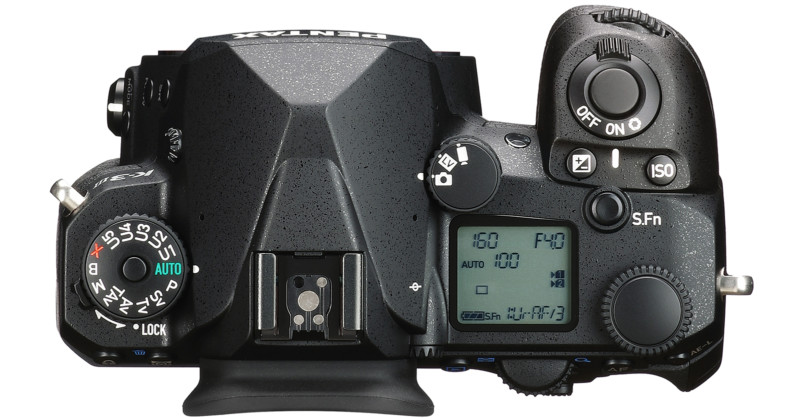
Pentax says that it was able to improve the noise-reduction performance at the higher ISOs, which allows the camera to boast a top sensitivity of 1,600,000.
The K-3 Mark III is also equipped with Pentax’s SR II Shake Reduction System which delivers 5-axis, 5.5-shutter-step camera shake compensation. That 5.5 step reduction is the highest Pentax has ever achieved, and is compatible with almost all Pentax lenses, including screw-mount, 645, and 67-system lenses via an adapter, though it might not have full functionality across all.
That shake reduction system also allows the camera to feature a pixel-shift high-resolution capture mode, which shifts that sensor four times by a single pixel to create a synthesized composite with greater color data and finer details. To make this system more useful with a wider range of scenes and subjects, the camera also has a Motion Correction function, which can be toggled on and off and detects only moving elements of the image during continuous shooting and minimizes negative effects during the synthesizing process.
The rear LCD is a 3.2-inch monitor with approximately 1,620,000 pixels which supports touch operation. It also has a special resin material injected into the gap between the LCD layers and the tempered glass cover which Pentax says reduces reflections to improve visibility while shooting outdoors.
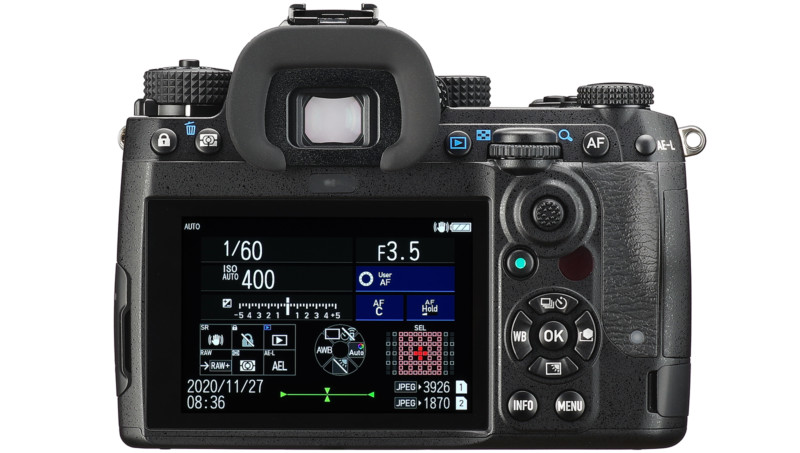
The K-3 Mark III features Pentax’s SAFOX 13 autofocus system which has 101 focus sensors. SAFOX 13 is a newly-developed phase-matching AF sensor module that Pentax says is dependable for precision autofocus operations. 25 of the 101 sensors are cross-type positioned in the middle to help pinpoint focus on the subject at minimum brightness levels as low as -4 EV. It also features a new, high-capacity RGBIr image sensor with approximately 307,000 pixels and a newly developed image-tracking algorithm, Pentax claims that the camera also assures accurate tracking of subjects moving at varying speed or in an irregular motion. A newly installed AF point selector lever allows the user to select the desired focus point more intuitively (up to 41 points).
Built on top of this is Pentax’s real-time scene analysis system supported by artificial intelligence. Powered by the PRIME V processor and the RGBIr image sensor, the AI is able to detect face and eyes and make real-time analysis adjustments for movement. By using deep learning, the system promises to provide accurate subject detection and more reliable scene judgment.
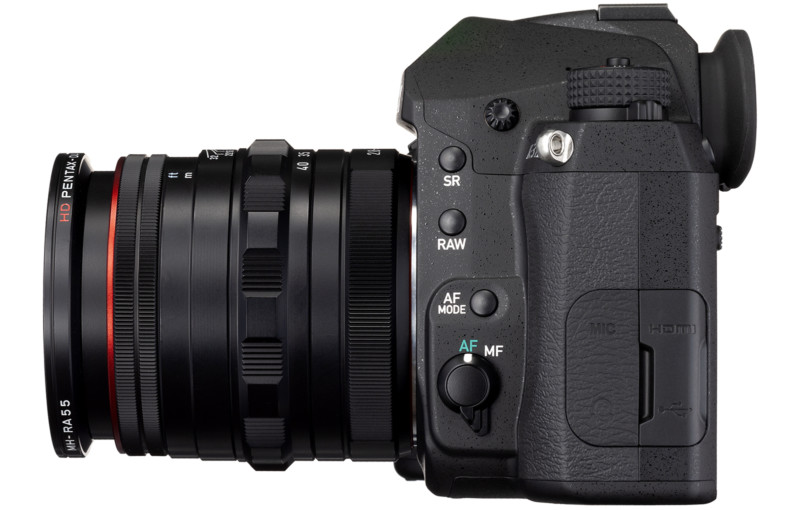
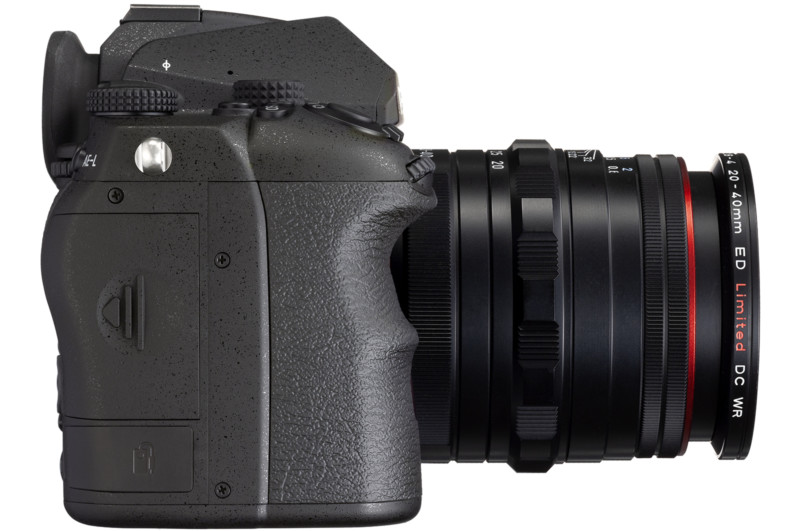
The Pentax K-3 Mark III features a top shooting speed of 12 images per second in AF-S mode and 11 images per second in continuous.
The body of the DSLR is dustproof and weather-resistant and the top, bottom, front, and rear panels are all made of magnesium alloy. These are coupled with dustproof special seals applied to crucial parts of the body. The result is a camera that has “outstanding” cold resistance and is able to promise stable operation at temperatures as low as -10 degrees Celcius (14 degrees Fahrenheit). The shutter unit is also durable and rated for 300,000 actuations.
The camera can shoot 4K video at up to 30 frames per second and Full HD 1080p video at up to 60 frames per second, both in H.264. It has a mic jack and headphone terminal and audio recording levels and monitor volume can be individually toggled. The camera also supports fully touch control of its features while recording to limit how much sound the camera makes while recording.
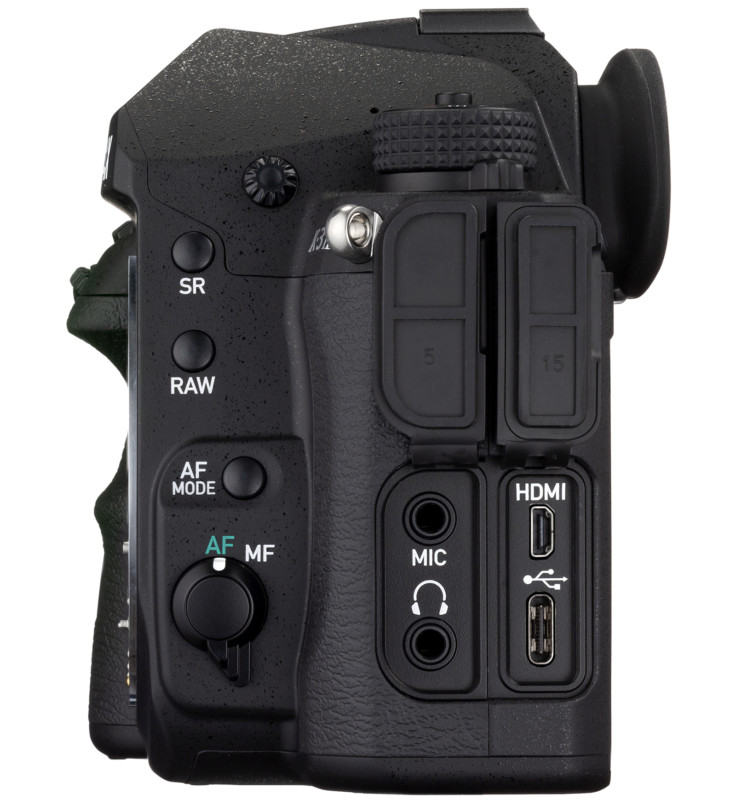
Other notable features include the DR II (Dust Removal II) mechanism, charging support via USB Type-C, an HDR feature that saves captured images as RAW format files, a dual SD card slot (one UHS-I and the other UHS-II), and compatibility with older lenses without electronic contacts (shooting with such lenses is supported in Aperture-priority mode, and the lens focal length is saved as Exif data).
The Pentax K-3 Mark III will be available on April 6 at 5 PM ET for $2,000. The company is also producing two limited-edition kits: a Pentax K-3 Mark III Black Premium Kit and a Silver Premium Kit.
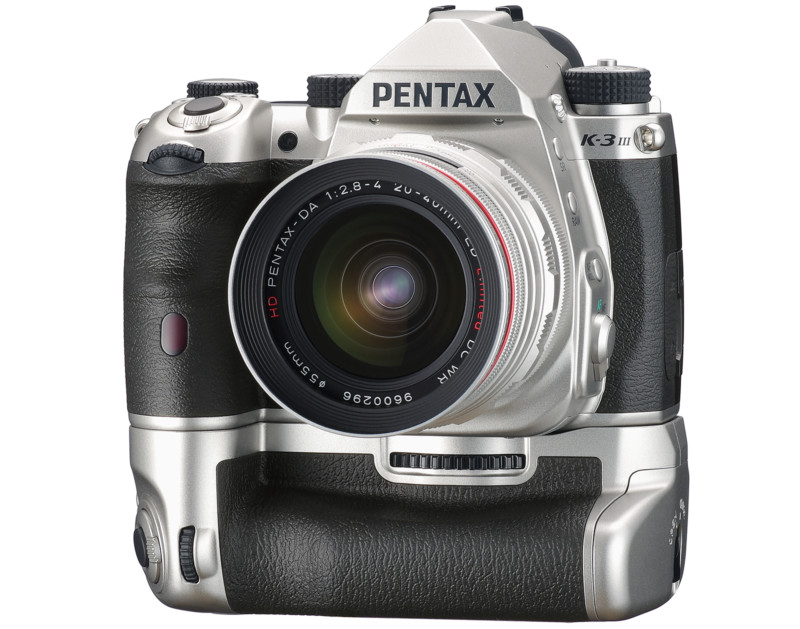
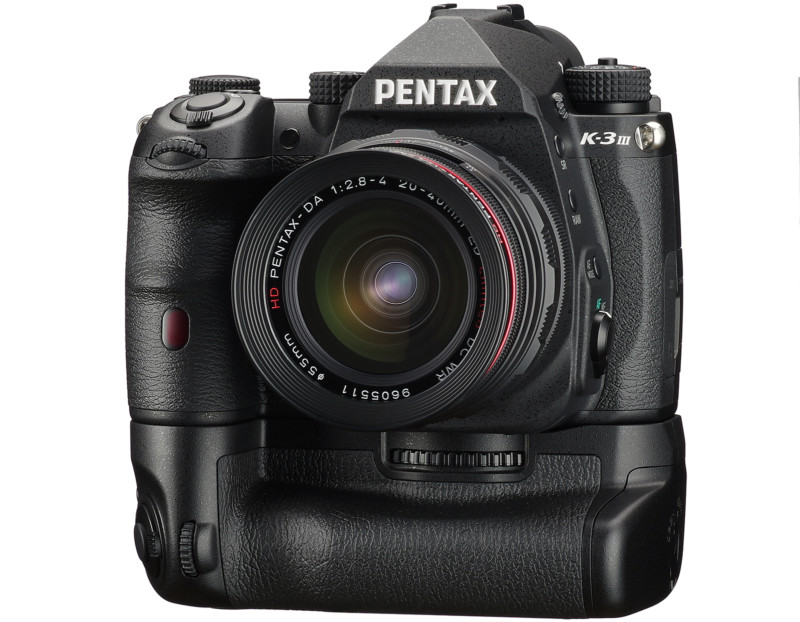
Each includes the camera body and battery grip (the Silver Premium Kit comes with a silver camera body and a silver battery grip that is exclusive to this bundle), plus a spare battery and an “exclusive” leather strap. These premium kits will be available in late April for $2,300.